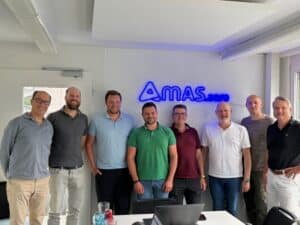Understanding the Importance of Compliance Efficiency
Tips and Best Practices for Achieving Compliance Efficiency
1. Leverage Technology and Automation
One of the core strengths of AMAS.aero is its ability to automate and digitize compliance management processes. By utilizing automated intelligence, aerospace companies can automate routine tasks, which saves significant time and reduces the potential for human error. Assisted intelligence features also support faster and better task performance, while augmented intelligence helps in making more informed decisions.
Best Practice: Implement AMAS.aero’s automated workflows for tracking regulations and standards, managing audits and inspections, and monitoring non-conformities and tasks. This not only streamlines processes but also ensures no regulatory change is overlooked.
2. Customize to Your Needs
AMAS.aero emphasizes the importance of customizing compliance processes to fit individual organizational needs. A one-size-fits-all approach is seldom effective in the nuanced field of aerospace compliance.
Best Practice: Utilize AMAS.aero’s easy setup and customization options to tailor the platform to your company’s specific requirements. This ensures that your compliance management system aligns with your operational workflow and regulatory obligations.
3. Stay Informed and Up-to-Date
The aerospace industry’s regulatory environment is dynamic, with frequent updates and changes. Staying informed and up-to-date is crucial for maintaining compliance.
Best Practice: Take advantage of AMAS.aero’s comprehensive compliance library and up-to-date regulatory databases. Regularly reviewing changes and updates can prevent compliance gaps and ensure continuous adherence to the latest industry standards.
4. Streamline Audits and Inspections
Audits and inspections are key components of the compliance process but can be resource-intensive. Streamlining these activities can significantly improve efficiency.
Best Practice: Use AMAS.aero’s paperless audit process and digital audit reporting features. This not only reduces the paperwork involved but also makes it easier to track findings, manage non-conformities, and follow up on tasks.
5. Enhance Communication and Collaboration
Effective communication and collaboration among teams and departments are vital for a cohesive compliance strategy. AMAS.aero facilitates this through its integrated communication tools.
Best Practice: Utilize AMAS.aero’s features for managing meetings, creating protocols, and scheduling reviews. Ensuring clear and efficient communication helps in aligning compliance efforts across different parts of the organization.
6. Focus on Training and Continuous Improvement
Compliance is not a one-time task but a continuous process that involves constant learning and adaptation.
Best Practice: Engage in ongoing education and training opportunities provided by AMAS.aero and other reputable sources. Foster a culture of continuous improvement and encourage staff to stay informed about compliance best practices and industry trends.
7. Implement robust Risk Management
An effective risk management is essential to ensure that compliance obligations are met and that potential risks associated with non-compliance are identified and addressed.
Best Practice: AMAS.aero allows users to create customizable risk registers to track identified risks throughout the organization. Ensure that the risk register is regularly updated with new risks, their likelihood, potential impact, and mitigation strategies.
Conclusion
Achieving compliance efficiency in the aerospace industry requires a strategic approach, leveraging the right tools, and adhering to best practices. AMAS.aero stands at the forefront of simplifying and optimizing compliance and safety management processes with its innovative cloud-based platform. By adopting AMAS.aero’s expert strategies, aerospace companies can not only meet but exceed their compliance and safety management goals, ensuring operational excellence and industry leadership.
In the journey towards aeronautical excellence, AMAS.aero is your trusted partner, offering a comprehensive suite of applications that empower aerospace organizations to streamline compliance, enhance safety, and focus on their core operations. Embrace the future of compliance and safety management with AMAS.aero, where efficiency, innovation, and compliance converge.




